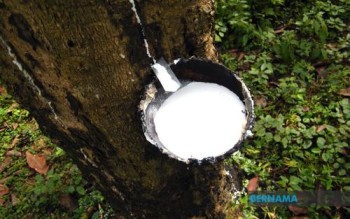

The Kuala Lumpur rubber market ended mixed on January 20, 2025, influenced by weaker regional rubber futures markets. Japanese rubber futures concluded a six-session rally due to concerns over seasonal demand and a firmer yen. Despite this, the market was poised for its largest weekly gain in over two months, largely driven by rising oil prices [265e109a].
The Standard Malaysian Rubber 20 (SMR 20) price fell by 5.0 sen to 879.50 sen per kg, while latex in bulk rose by 1.5 sen to 672.00 sen per kg, reflecting the mixed sentiment in the market [265e109a]. This fluctuation in prices comes on the heels of a surge in US manufacturing output, which increased by 0.6% in December 2024, aided by Boeing's production recovery following a strike [265e109a].
Additionally, a recent positive phone call between US President-elect Donald Trump and Chinese President Xi Jinping has raised hopes for improved US-China relations, which could have further implications for global trade dynamics, including the rubber market [265e109a].
In the previous month, the Kuala Lumpur rubber market had seen a boost from rising crude oil prices, which had a positive effect on natural rubber demand due to increased production costs for synthetic alternatives [9c8cdda4]. However, ongoing challenges such as heavy rains and flooding in Thailand continued to disrupt natural rubber production, impacting supply chains and market stability [9c8cdda4].
As the market navigates these complex influences, including economic data and international relations, traders and manufacturers remain vigilant about future trends and their potential impacts on rubber prices and availability [265e109a].